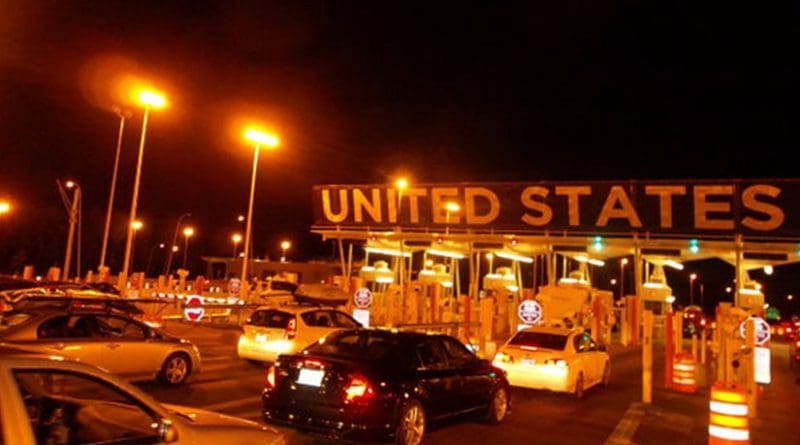US: Children Face Deportation Without Lawyers, Says HRW
The failure of the United States government to appoint lawyers to represent migrant children facing deportation violates their basic rights under international law, Human Rights Watch said Monday in an amicus (“friend-of-the-court”) brief filed in a federal appeals court.
The Columbia Law School Human Rights Institute and the law firm Covington and Burling LLP served as counsel on the brief. Students in Columbia Law School’s Human Rights Clinic provided research and drafting assistance for the brief.
The amicus brief was filed in the case of J.E.F.M. v Lynch, a nationwide lawsuit on behalf of thousands of children who are challenging the federal government’s failure to provide them with legal representation in deportation hearings. In immigration proceedings, unlike criminal cases, there is no guaranteed right to a lawyer paid for by the government for those who cannot afford one.
“Thousands of children in deportation hearings in the US must stand alone before government lawyers and judges, and try to make their case without a lawyer,” said Clara Long, US immigration researcher at Human Rights Watch. “These hearings are incredibly complex and the consequence of losing is the potentially deadly threat of deportation.”
The US Congress should pass a bill pending in the Senate that would require the government to appoint lawyers for unaccompanied children and for victims of abuse, torture, or other violence, Human Rights Watch said.
The US Department of Justice began “fast-tracking” children’s deportation cases in immigration courts in 2014. Since then, the courts have ordered deportation for thousands of children who were not represented by a lawyer, often after only one hearing. On March 9th of this year, Department of Homeland Security Secretary Jeh Johnson said his department would continue its efforts to arrest and deport people age 18 and older who had been ordered deported as children.
“A system that requires a child to appear alone before an immigration judge poised to make a potentially life or death decision is neither fair nor just,” said Risa Kaufman, executive director of the Columbia Law School Human Rights Institute. “Countries around the world recognize the need to provide legal counsel to children in this very vulnerable situation.”
International human rights law recognizes that migrant children lack the capacity to represent themselves and must be appointed counsel to ensure due process in deportation proceedings, Human Rights Watch said in its brief.
“Children require special safeguards and legal protection,” said Ben Setel, a Columbia Law School student who worked on the brief. “And the stakes for the children in this case could not be higher.” An immigration judge asserted in an October 2015 deposition for the children’s suit that a 3- or 4-year-old child could effectively represent themselves in immigration court and was capable of learning immigration law.
Over 28,000 unaccompanied children from El Salvador, Guatemala, and Honduras crossed through Mexico into the US during the last fiscal year. A 2014 United Nations refugee agency study found that many children migrating from these Central American countries said they were fleeing violence and persecution and would face harm if forced to return home.
“US officials have recognized that many of the people leaving Central America are fleeing serious threats to their lives,” said Elisa Solomon, an associate at Covington and Burling, LLP. “Yet the US immigration system treats children who have arrived in the US as if their claims don’t deserve full due process protection.”

